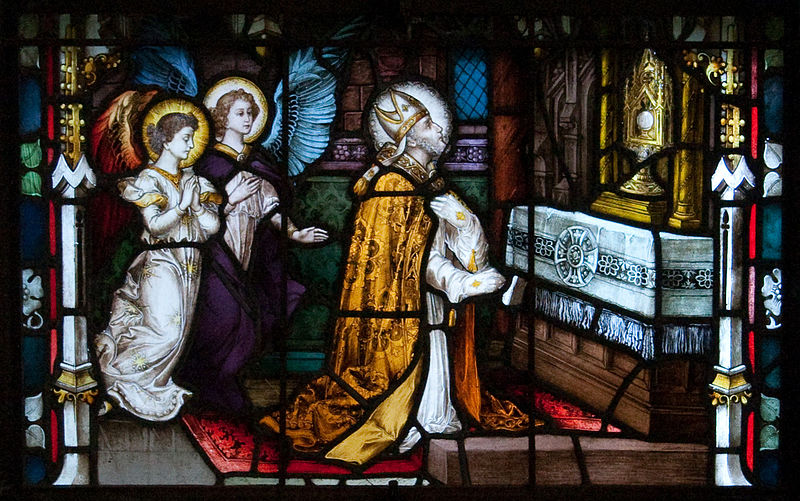 |
| Catmint border, 7 Trees in Memorial Grove of Atlas Martys |
----- Forwarded Message -----
From: Raymond J. . .>
To: . . .>
Sent: Sunday, 5 August 2012, 18:34
Subject: The Mirror of the Eucharist
To: . . .>
Sent: Sunday, 5 August 2012, 18:34
Subject: The Mirror of the Eucharist
The Mirror of the Eucharist - Sun 18 B
- The Eucharist is, of course the most precious jewel among the gifts of our faith. But there are many facets to that precious jewel. It is the GREATEST of the Sacraments; it is the most WONDERFUL of the sacraments; It is the most POWERFUL, of the sacraments; It is the most BEAUTIFUL and INSPIRING of the sacraments, and it is so many other things for us. It sums up the whole meaning of God’s relations with his children. It is bursting with the promise of an unspeakable destiny of communion with God for us.
- But today we would do well to concentrate on another quite different aspect of the Eucharist; one that’s brought to our attention in today’s first reading. This aspect can hardly be described under any of these terms. It is neither wonderful nor beautiful nor loving nor inspiring. The only word to describe it is perhaps – “challenging”. I don’t mean challenging in the sense that it challenges our faith; although it certainly does that! From the very first mention Jesus made of eating his flesh and drinking his blood it has been a challenge to our faith. But there is another way in which it challenges us who do believe in it still further. I mean the challenge we read about in the Book of Exodus. Today’s first reading is about the gift of the Manna in the desert foreshadowing the gift of the Eucharist in the life of the Church ever after. We read there that when God gave Moses this gift he said that it was given, not so much to feed them as to test them; to test whether it would induce them to follow his Laws. Now this character of a “Test” is still very much an important aspect of the role of the Eucharist in our lives. God has given us this unspeakable gift! Yes, we believe in it! But do we appreciate it? Do we partake of it? Do we live by it? Or do we neglect it? The Eucharist is a kind of Mirror of our souls. Jesus looks into that mirror, and he longs and hopes to see the frequent reflection of our faces there. The original Manna was given to test whether the children of the O.T. would follow the Old Commandments. The New Manna of the Eucharist is given to test whether we, the Children of the New Testament, will follow the New Commandment To love him as he has loved us.
- Unless you eat the flesh of the Son of Man and drink his blood you cannot have life in you











.gif)












